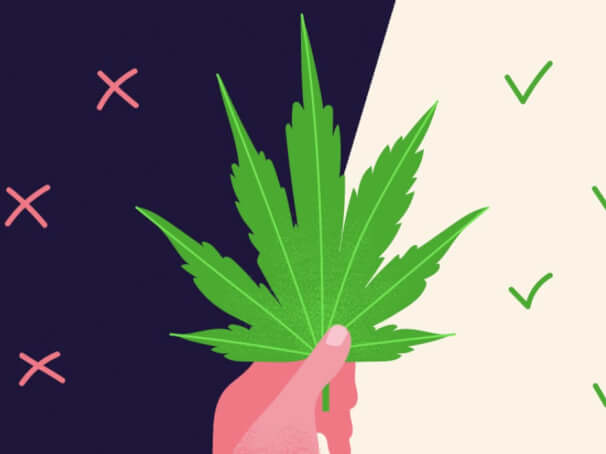
Blood pressure naturally fluctuates throughout the day. No matter how healthy you are, you're going to have higher blood pressure and lower blood pressure at different times during the day depending on what you eat, how much sleep you got, how much you're moving, and even how stressed you feel.
In some cases anxiety can have an effect on your blood pressure. But what's interesting is that anxiety doesn't just make your blood pressure higher – it can make your blood pressure lower as well.
Blood Pressure Changes and Anxiety
Anxiety is the activation of your fight or flight system – a system designed to keep you safe from harm – when no danger is present. The fight or flight system causes a number of physical changes that would help you respond to a predator or threat if one was present, but can be distressing when they occur without that danger.
Different types of anxiety can affect your blood pressure in different ways. To understand how anxiety can impact blood pressure, first you must gain a basic understanding of blood pressure and how it fluctuates.
- Increased Heart Rate Your increased heart rate is one of the main contributors to an increase in blood pressure. When you experience anxiety your heart rate increases – presumably to pump blood to areas of your body that need it if you were fighting or fleeing. But that increase in cardiac output causes an increase in pressure that raises your systolic pressure. It should be noted that your diastolic pressure usually remains stable, although a slight increase is possible.
- Contracting Ventricles This is directly related to heart rate because they're all part of the same system. But blood normally travels through the ventricles at some amount of pressure, and when you have anxiety the ventricles contract while blood is pumping through them, causing an increase in that pressure.
- Hypoventilation Remember, not all blood pressure changes cause high blood pressure. You can also have low blood pressure from anxiety, caused by hypoventilation. Many people breathe poorly when they have anxiety, causing them to breathe in too much carbon dioxide. This causes your body to operate at a weaker level, which in turn causes the blood vessels to dilate, which lowers blood pressure. Rarely is blood pressure dangerously low, but it may decrease.
- Salt/Sodium Studies have also shown that when stress causes hypertension (high blood pressure) your body may have trouble excreting sodium. High blood pressure may be somewhat self-sustaining as a result of anxiety, because excess sodium also causes an increase in blood pressure.
Finally, it is always important to remember that blood pressure fluctuates throughout the day due to exertion, diet, hydration, and more. Blood pressure is not constant even if you do not have any anxiety. So "high blood pressure" may not be high blood pressure at all, and may instead be a reading during one of these fluctuations.
Blood Pressure Changes Can Cause Anxiety
It's also possible for blood pressure to cause anxiety. Both low blood pressure and high blood pressure can cause changes in your heartbeat, dizziness and lightheadedness, and more. These symptoms can themselves create anxiety or trigger panic attacks, and that in turn may increase your anxiety. However, not everyone who suffers from high blood pressure experiences anxiety.
Is it Dangerous When Anxiety Affects Blood Pressure?
The greatest concern is whether or not your blood pressure changes are dangerous. The answer is a bit complicated. On the most basic level, affected blood pressure is not dangerous. Remember, random fluctuations happen all the time with no ill effects. Blood pressure is a symptom of an issue – whether it's anxiety or heart disease – and not a cause of heart problems.
Your heart rate and your blood pressure also may get a break with anxiety. The body is remarkable and adjusts to chronic conditions. Some people that experience anxiety for hours on end actually find that their blood pressure adjusts to that anxiety, which ultimately means that it goes back to a base level. High blood pressure changes tend to be fairly short term, and are most common in the early stages of anxiety or during panic attacks.
However, it would be wrong to say that this rise in blood pressure cannot be dangerous. For those with heart disease, these symptoms should not be taken lightly. Anxiety can cause a rapid heartbeat, which leads to higher blood pressure and could in theory exacerbate a heart condition. That's why it's always important to talk to a doctor and get checked out regardless of your anxiety.
How to Overcome Affected Blood Pressure
Your blood pressure is specifically monitored by your brain to ensure that your body is operating at an ideal level. Temporary spikes in blood pressure can cause concerns, but your body creates them for a reason.
It is important to make sure you learn to manage your anxiety to help ensure healthy blood pressure. Whether you have panic attacks, generalized anxiety disorder, obsessive compulsive disorder, etc., you still need to make sure that you're treating your anxiety in order to also treat your anxiety-related high blood pressure.
Summary:
Anxiety typically makes blood pressure increase, and in some cases can make blood pressure decrease. However, blood pressure fluctuates throughout the day with or without anxiety. It is best to not be too concerned with one’s own blood pressure, and instead focus on anxiety reduction.












